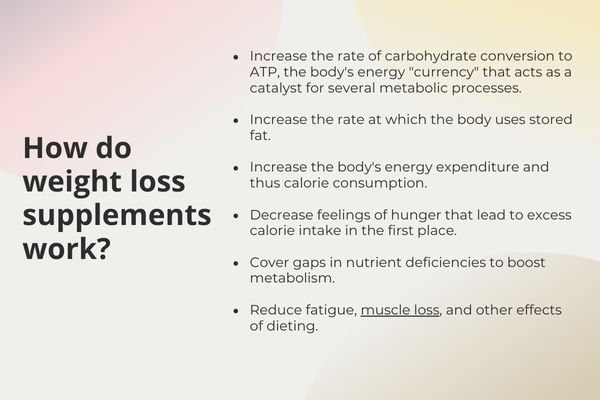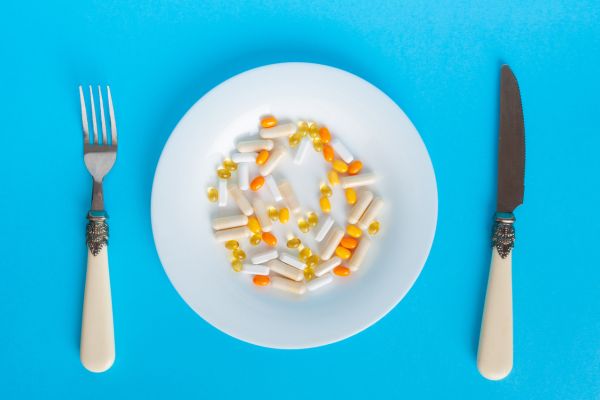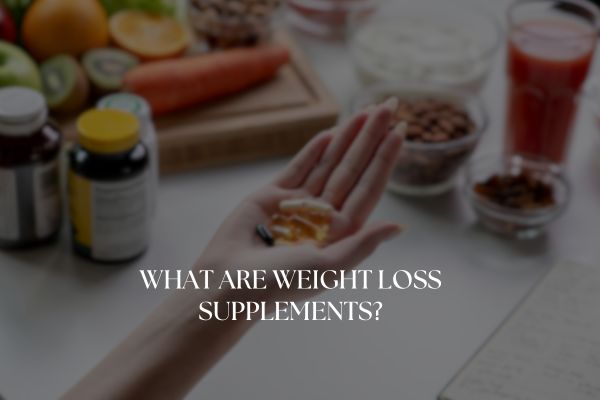Is Weight Loss Supplements Safety Something You Should Be Concerned About?
Yes, weight loss supplements safety is a major concern due to lack of FDA regulation, potential hidden ingredients, and limited human trials. To stay safe:
Research products and check for third-party testing.
Avoid self-medicating—always consult a healthcare provider.
Watch for side effects, especially with unregulated “fat burners.”
Understand that supplements are not substitutes for healthy habits.
Some ingredients like B-vitamins, magnesium, protein powders, and green tea extract show promise, but safety should always come first.
Between issues with health and mobility, menopause transitions (for women), and work commitments, following through with healthy eating/exercising in middle age is not always easy. Little wonder, the convenient option of weight loss supplements has become a necessary de facto. But are weight loss supplements safe? In this post, we provide a comprehensive overview of weight loss supplements, examining their safety and viability for your weight loss journey.
What are weight loss supplements?
Weight loss supplements are ingestible substances – capsules, liquids, pills, or powders – specially formulated to enhance metabolism and disrupt processes that lead to the storage, and accumulation of fat. These substances may be taken alone or side by side with food and primarily contain additional vitamins and minerals to boost body functions. Weight loss supplements can be broadly categorized into:
- Vitamin/nutrient boosters
- Appetite suppressants
- “Diet” pills
- Fat burners

How do weight loss supplements work?
To better understand how weight loss supplements work, you must first understand energy balance and what causes weight gain in the first place. Under normal circumstances, weight gain will occur when you take in more calories via the chemical energy in food than you expend via physical activity. The excess calories are eventually stored as fat and deposited across your body.
Weight loss supplements are designed to perform one or more of the following functions:
- Increase the rate of carbohydrate conversion to ATP, the body’s energy “currency” that acts as a catalyst for several metabolic processes.
- Increase the rate at which the body uses stored fat.
- Increase the body’s energy expenditure and thus calorie consumption.
- Decrease feelings of hunger that lead to excess calorie intake in the first place.
- Cover gaps in nutrient deficiencies to boost metabolism.
- Reduce fatigue, muscle loss, and other effects of dieting.

Are weight loss supplements safe?
Over-the-counter weight loss supplements, despite their widespread use, are not regulated by the US FDA, whose modus operandi is a model for many Countries in the world. This contrasts starkly with anti-obesity prescription medications where stringent regulation is the norm. In fact, as per the FDA website, companies are free to mass produce and sell OTC weight loss supplements on their own, without notifying the FDA.
The result? Users are left with little option but to trust the veracity of the manufacturer”s claim about the weight loss supplements safety and that the supplements contain what it is said to contain and function as described. This is hardly ideal in an industry where even a modicum of half-truths and lies can have potentially fatal consequences!

The Risks and Uncertainty of Weight Loss Supplements Safety
The supplements could include undisclosed or mislabeled constituents that pose severe long-term complications, react badly with certain medications, or trigger allergic reactions. As chilling as this example is, it is not without precedent. After all, the FDA recently banned Ephedra, a common weight loss herb that was linked to side effects like heart attacks and stroke.
Another safety concern with weight loss supplements is the strikingly few standardized clinical trials around a majority of the products. Randomized controlled trials are rare and most product research consists of animal laboratory studies rather than long-term human trials.
Read about the best non surgical weight loss procedures in Elegant Hoopoe website!
When human trials are conducted, results are often championed based on only a handful of these trials, amid clear procedural deficiencies and conflicts of interest. One such instance is the testing of products with multiple ingredients where the effects cannot exactly be pinpointed to one particular ingredient, and the results are not sufficiently cross-examined across different physical profiles, age groups, genders, etc.
This notwithstanding, some supplements have stronger scientific “roots” than others, and we’ll briefly examine some of these in the next section.
Please DO NOT self-medicate. Consult your healthcare professional or dietician for advice on the best supplements for you.
Some common weight loss supplements
Multivitamins:
contains cognitive-enhancing nootropics and B vitamins, which are important for energy metabolism and the reduction of oxidative stress. Some brands also have iron as an ingredient, providing additional benefits like enriching hemoglobin and oxygen transportation across the body.
Magnesium:
Aids the proper functioning of vitamin D in the body and also plays a role in protein synthesis and energy production. While supplements provide rapid gains, magnesium can also be obtained from chia seeds, nuts, almonds, and several fruits like Avocado and bananas.

B-vitamins:
Are NAD precursors that are converted to NAD and NAD+ in the body, crucial catalysts for the production of ATP – the cell”s energy currency. ATP plays an important role in all metabolic processes, including the body”s breakdown of carbohydrates into energy.
See also: What is NAD IV therapy?
Protein powders:
Supplement protein levels, providing a variety of weight loss benefits. The complexity of proteins means that they require significantly more calories to digest than other food groups, promoting calorie consumption. Protein also makes you feel full for longer (as the digestion process takes effect), in addition to aiding the production of lean muscle mass, which burns more calories than fat muscle mass.
Beta-glucan:
Is a soluble fiber, present in oats and barleys (and available as supplements), that promotes satiety and improves blood sugar control/ pressure. Beta-glucan also supports healthy weight maintenance, owing to the human body’s peculiar digestion of fiber.
Green tea and green coffee extract:
Green tea is a popular East Asian drink that prevents weight gain by restricting gut enzymes that catalyze the absorption of fat and sugars, thus reducing how many calories the body processes. The extract is high in catechins, raising the activity of fat-burning hormones.
Green coffee extract, on the other hand, is obtained from unroasted coffee beans containing natural antioxidants, i.e., chlorogenic acids that reduce the amount of glucose absorbed in the body after meals.
Related Article: Miracle weight loss drink recipe
Vitamin D and K:

The body produces vitamin D when exposed to sunlight, but not everyone gets adequate sun exposure, hence the reason for the supplement. Vitamin D works in tandem with vitamin K to improve bone and heart health, both of which bear the brunt of low physical activity.
While vitamin D supplies calcium, vitamin K ensures that the bulk of calcium is transported to the bone for growth and augmentation, preventing an otherwise buildup in the arteries and soft tissues, which can have serious consequences for the heart.
Omega-3 fatty acid:
Obtainable from fish oil, salmon, and roysters, omega-3 fatty acid contains EPA and DHA that aid in fat metabolism – limiting fat storage and appetite suppression. Probiotics are naturally existing gut bacteria that help appetite regulation and reduce food cravings. Probiotics can be supplemented to balance the gut bacteria.
Note: Bitter orange is another oft-cited weight loss supplement, which we excluded from this list because of the presence of synephrine, its key ingredient that has a similar composition to the FDA-banned ephedra.
Weight Loss Supplements Safety: Conclusion
Supplements merely supplement healthy eating and exercise and should not be mistaken as a quick fix to weight loss. Discounting the absence of regulatory oversight and shrouded research surrounding most weight loss supplements, the fact that many of these products stifle natural appetite and/or block nutrient absorption already increases the likelihood of health complications moving forward.
Threading with caution is essential and again, you should speak with your doctor or dietician to formulate a safe and effective weight loss plan that excludes supplements, if possible.
But if you must use supplements, here are some extra weight loss supplements safety precautions:
- Research your options from trusted websites or your country”s dietary supplement agency before making a purchase.
- Prioritize third-party approved products and scour the internet for genuine reviews
- Include health practitioners in your decision-making, especially if you are pregnant, breastfeeding, on prescription medications, or have underlying health conditions.






